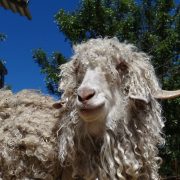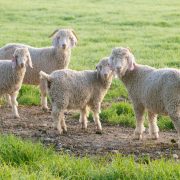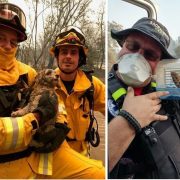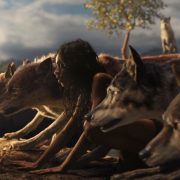Lacoste Joins 340+ Brands in Banning Mohair After Shocking PETA Exposé
After hearing from PETA France that goats are violently mutilated and killed for mohair, Lacoste agreed to stop using the cruelly obtained fiber, stating that the company is “very concerned with animal welfare.”
VICTORY! After PETA Asia’s recent eyewitness investigation of the mohair industry revealed the abuse and exploitation of angora goats, @LACOSTE has made the commendable decision to implement a total ban on the material. 🐐🌱❤️✊ https://t.co/2PipH6EFWN pic.twitter.com/kvbEbaNbGR
— PETA UK (@PETAUK) December 5, 2018
Famous for its crocodile logo, Lacoste boasts 1,200 shops and 10,600 outlets spread across 120 countries. It initiated its mohair ban after seeing our first-of-its-kind video exposé of the mohair industry in South Africa, where more than 50 percent of the world’s mohair comes from. The French clothing company previously committed to banning angora and fur following discussions with PETA.
As revealed in the exposé, sensitive baby goats cried out in fear and pain as they were sheared for mohair sweaters and scarves.
The exposé shows that shearers—who are paid by volume, not by the hour—worked quickly and carelessly, leaving angora goats with gaping wounds. Workers then roughly stitched the animals up without giving them any pain relief.
Unwanted goats died in agonizing ways: One worker slowly cut their throats with a dull knife while they were fully conscious and then broke their necks, hacking one animal’s head off. Others were hauled to a slaughterhouse, where they were electrically shocked, hung upside down, and slashed across the throat.
PETA’s exposé pulled back the curtain on the violent mohair industry, and now over 340 brands have implemented bans.
Lacoste has joined the growing list of fashion brands that recognize that today’s shoppers don’t support cruelty to animals. Other brands that have banned mohair include Ralph Lauren, Diane von Furstenberg, Gap, Banana Republic, H&M, Topshop, UNIQLO, Overstock.com, and Zara.
Let’s Keep Pushing: Urge Free People to Ban Mohair
It’s undeniable that when you speak up for animals—who, like anyone, only want to live free from torment—companies listen! Keep the pressure on: Use our form to encourage Free People to ban mohair now.







